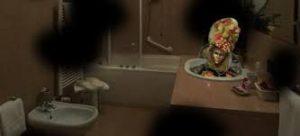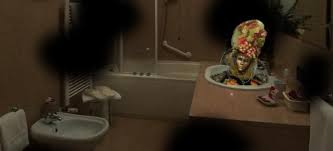 Charles Bonnet syndrome?
Charles Bonnet syndrome?
It was only when I met Victor ( not his real name ) that I realised I knew nothing about Charles Bonnet syndrome. Only yesterday he asked me ‘Are they stealing the animals?’
Victor was once an army stunt motorcyclists, fearless and invincible. To see him now saddens me. He is timid, shy, emotional and terrified. He doesn’t have dementia but could be mistaken so. His symptoms blur with confusion and fear. He is settled temporarily from his visual horrors by a warm hand soft words. A gentle giant crushed by sight loss.
What is Charles Bonnet Syndrome (CBS)
I needed to understand the condition more to help my staff meet his needs, but also to help others with a diagnosis of CBS.
CBS is caused by extensive sight loss to see things that simply are not real. The hallucinations are not a sign that someone has a mental health problem.
People see with CBS tend to fall into two categories, those who see simple repeated patterns or shapes such as grids or brickwork and those seeing complex objects such as people, animals, and landscapes such as Victor.
The hallucinations do not involve hearing or feeling things that are not there and people are usually aware that what they are seeing isn’t real, having said this is can be frightening. They tend to reduce with time and it was initially thought they only lasted 12-18 months but a recent study has shown it is not unusual to have them as long as 5 years after they started.
Who is at risk?
CBS happens to people who have already lost a lot of vision from an eye condition, for example, age-related macular degeneration, cataracts, glaucoma or diabetic eye disease. As these conditions are more common in older people, many people who have CBS also tend to be older. However, people of any age, including children, may develop CBS following sight loss.
It is hard to know how many people in the UK live with CBS as many people do not admit the condition to their GP’s. Not everyone with sight loss, fortunately, will go on to develop CBS. However, it is good if people are forwarned just in case.
The man behind the name.
Charles Bonnet syndrome is named after a Swiss philosopher and writer who lived about 250 years ago. He wrote about the experiences of his grandfather who lost his sight following cataract surgery. His grandfather began having “visions” which were not really there.
What causes it?
CBS is caused by the loss of vision and the brain reaction to this. Exactly how this leads to hallucinations is not fully understood, but research is slowly revealing more about how the eye and brain work together. When sight is good, you see reality and the information from the eyes stops the brain creating its own. When you can’t see the real images, the brain creates them and they are not always pleasant.
Diagnosing Charles Bonnet Syndrome
There is no one test that can diagnose the condition. Your GP will want to rule out other causes of hallucinations. If there are no signs of any other conditions that might be causing your hallucinations, and you have recently lost your sight, then it’s likely that the hallucinations could be caused by CBS.
There are some medical problems, such as Parkinson’s disease, Alzheimer’s disease, strokes, serious mental illnesses, and other brain conditions, that can affect the parts of the brain concerned with seeing. These conditions may cause some people to have hallucinations.
Dealing with the hallucinations
When someone has a hallucination, you can try making some changes to the things around them and to what they are doing sometimes this can make your hallucination stop. Many people get hallucinations when they are relaxing with nothing to occupy them. Sometimes moving to another room can help. It is also thought that rapid blinking may help. Changing light levels can help too and stress levels can have an effect on them.
RNIB
RNIB Connect is free to join and you’ll have the chance to meet other people with similar experiences in our helpful, welcoming and supportive community.
Give them a call today to find out how they can help you.
RNIB Helpline
0303 123 9999
helpline@rnib.org.uk

